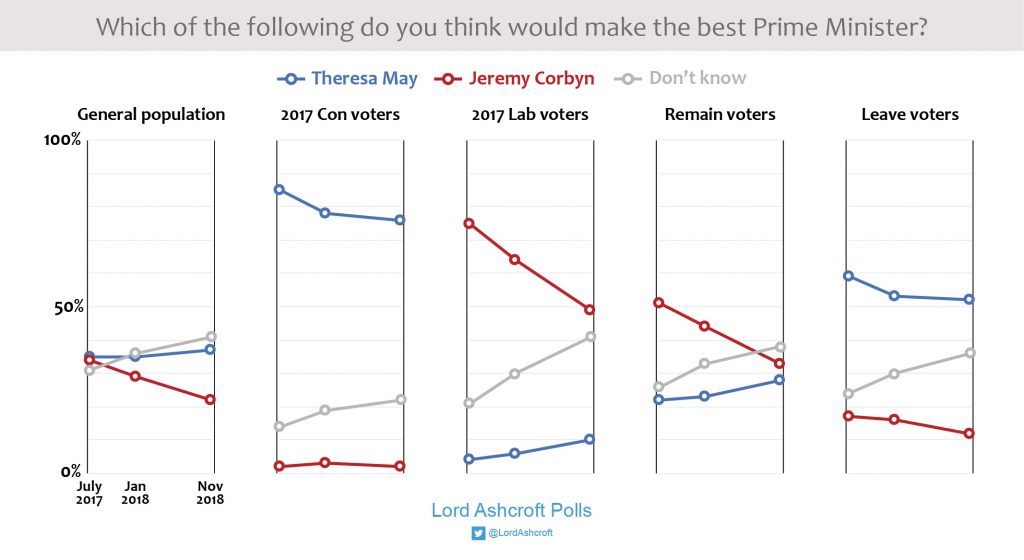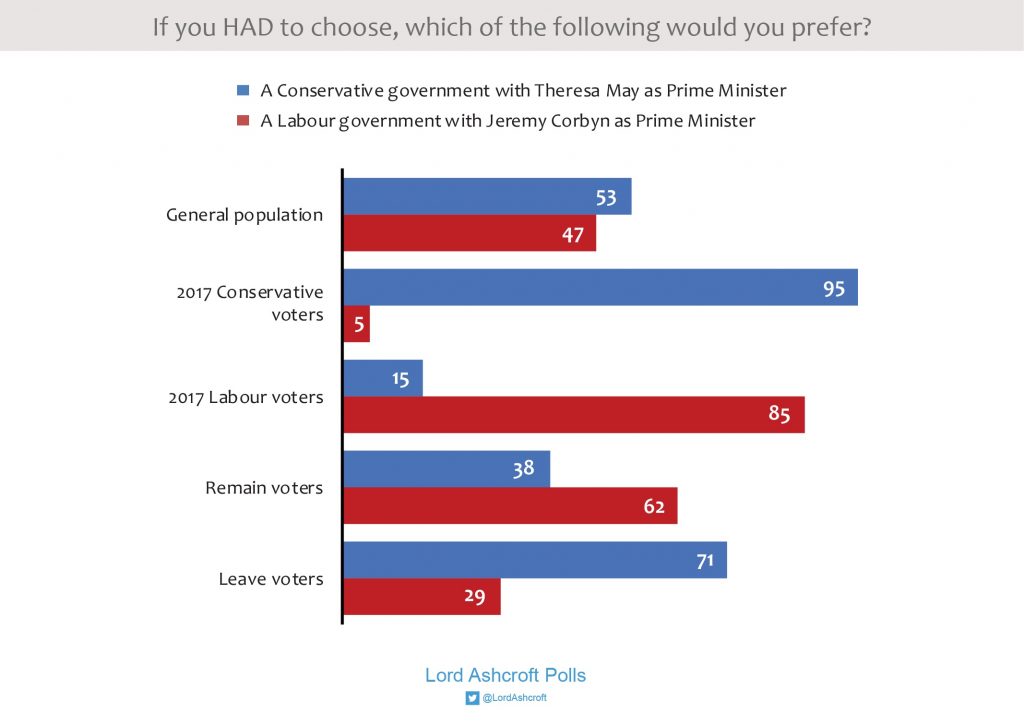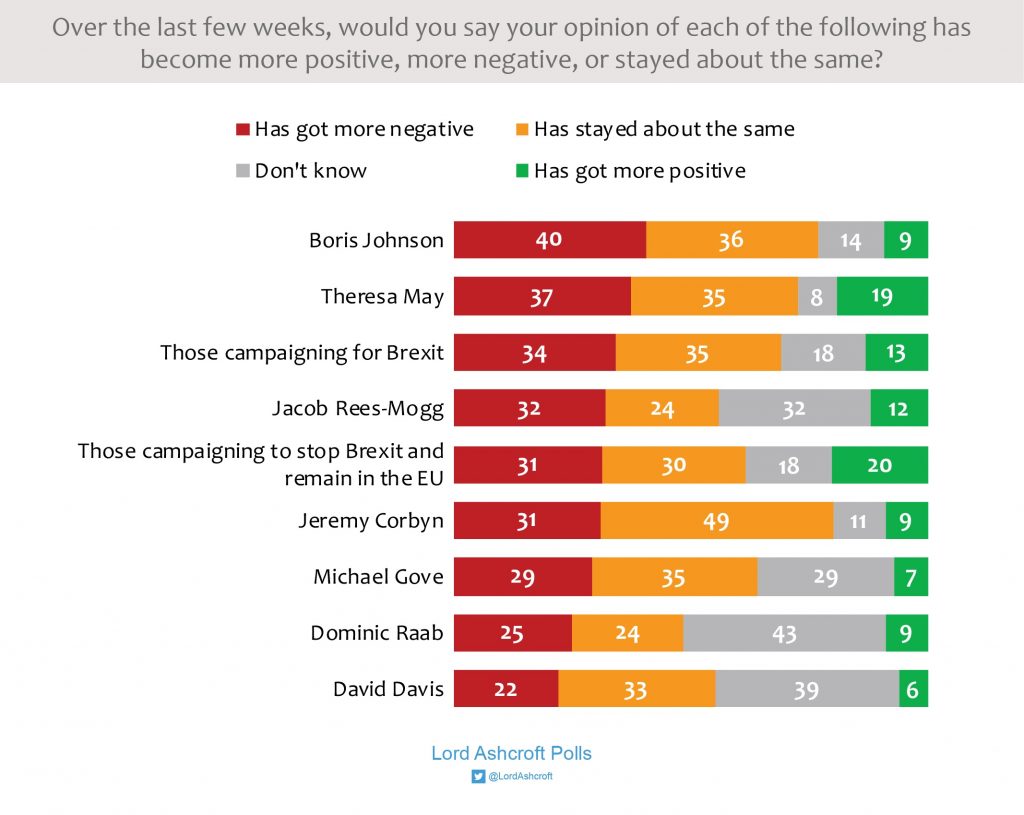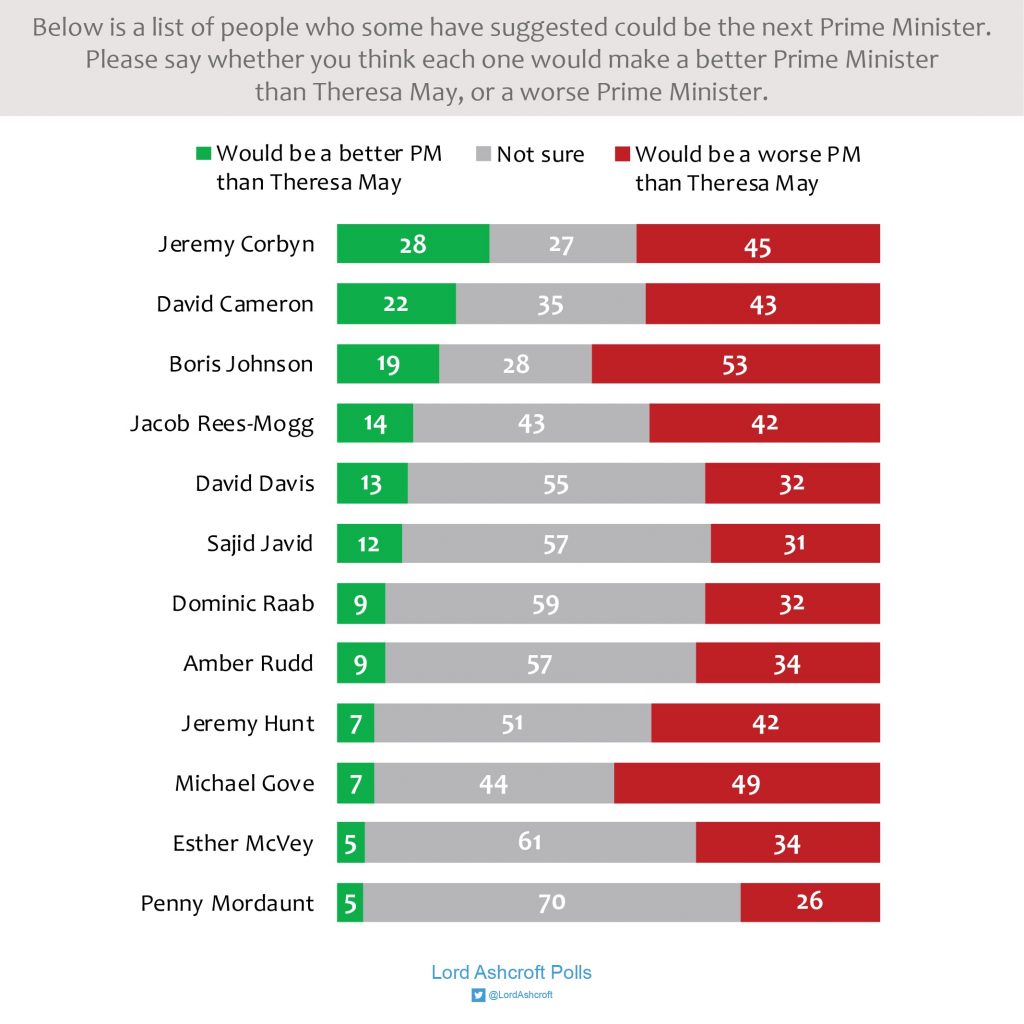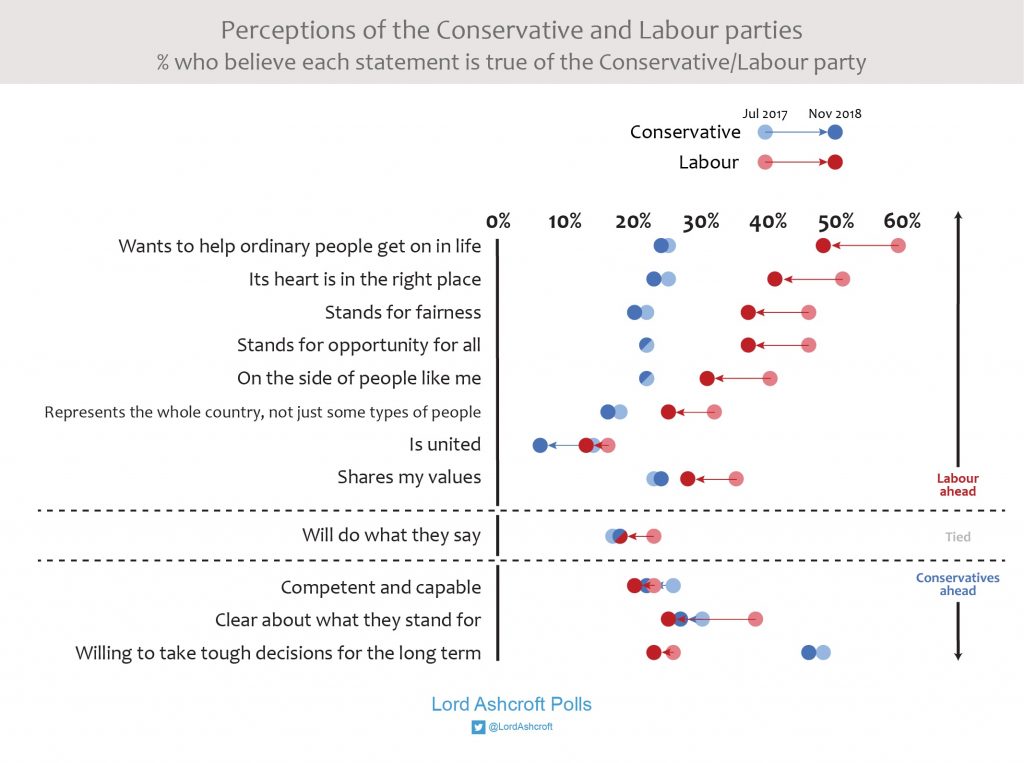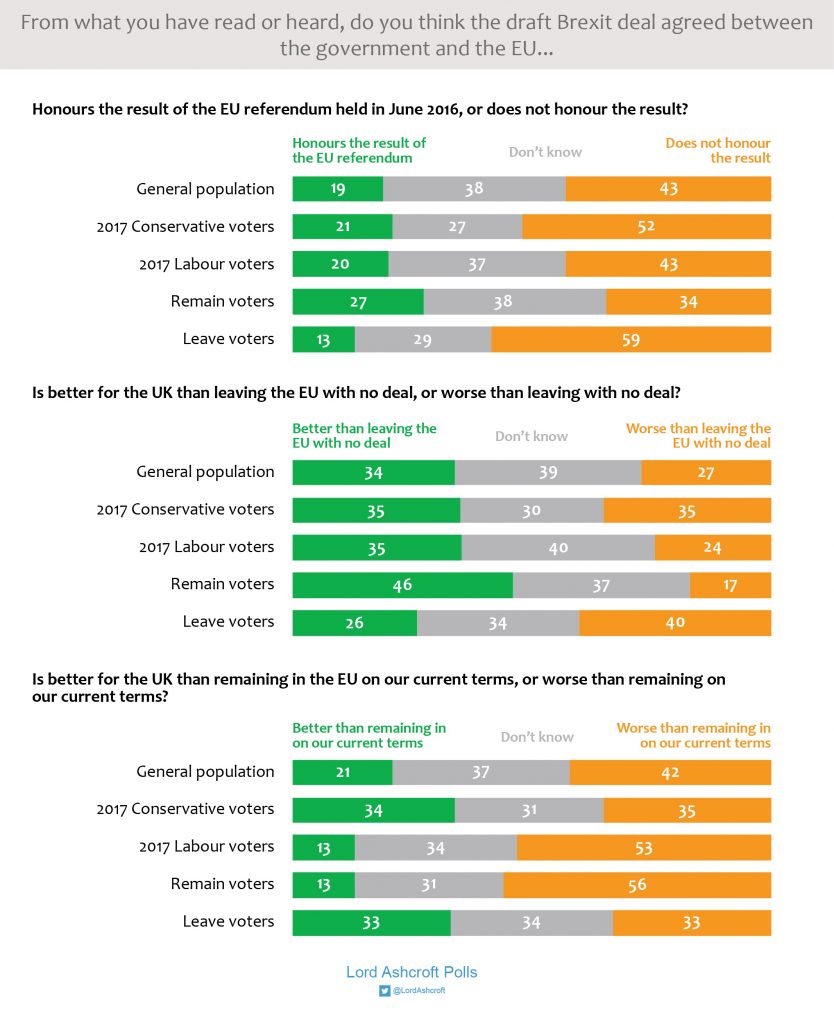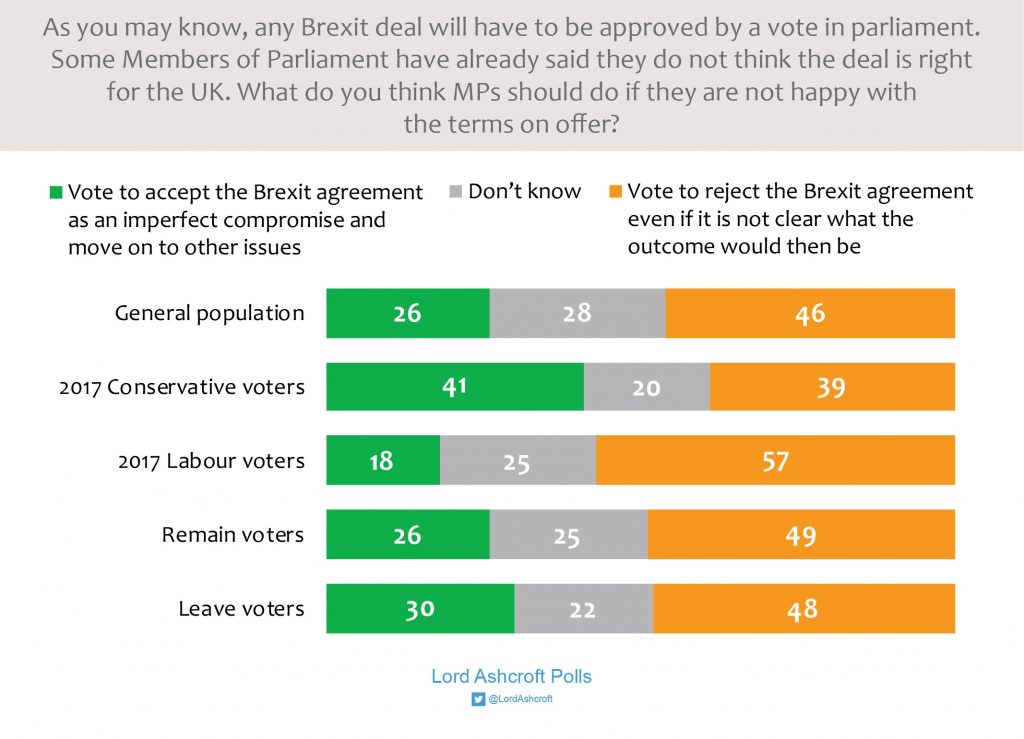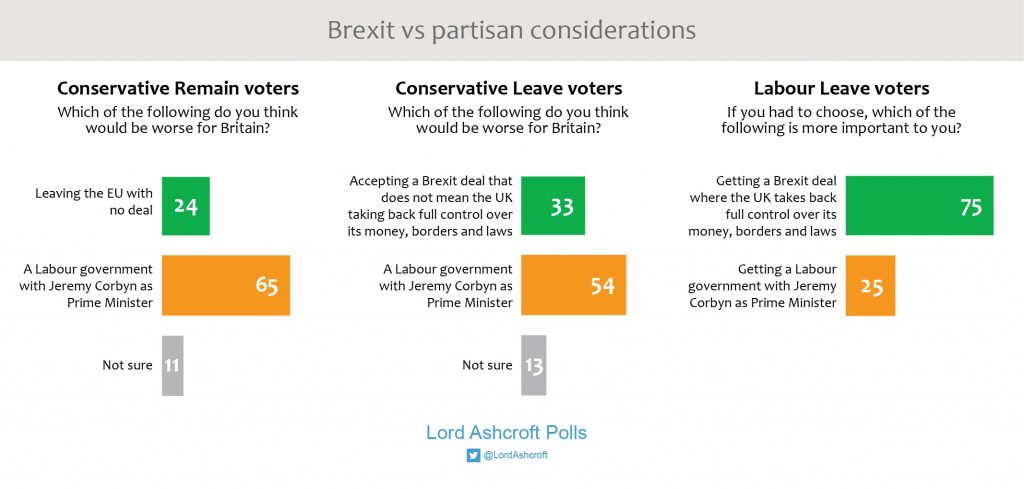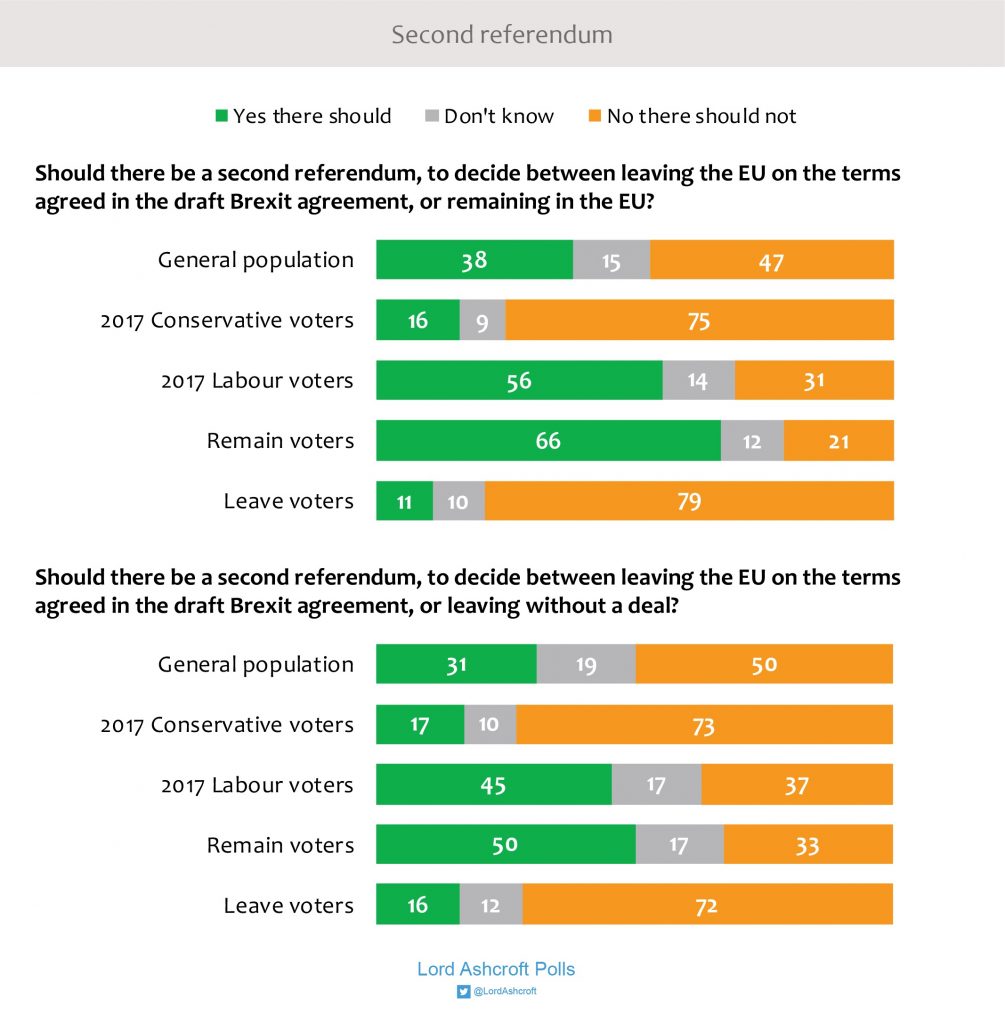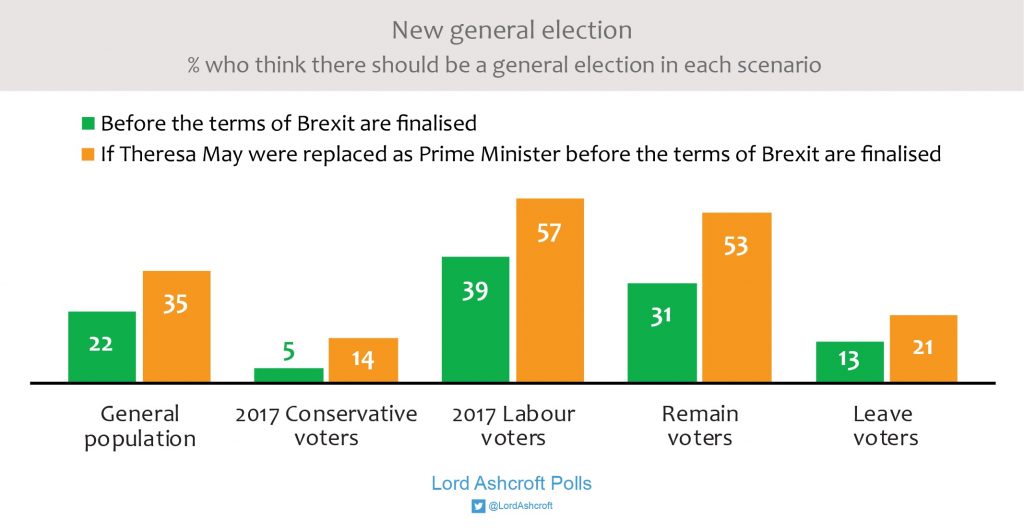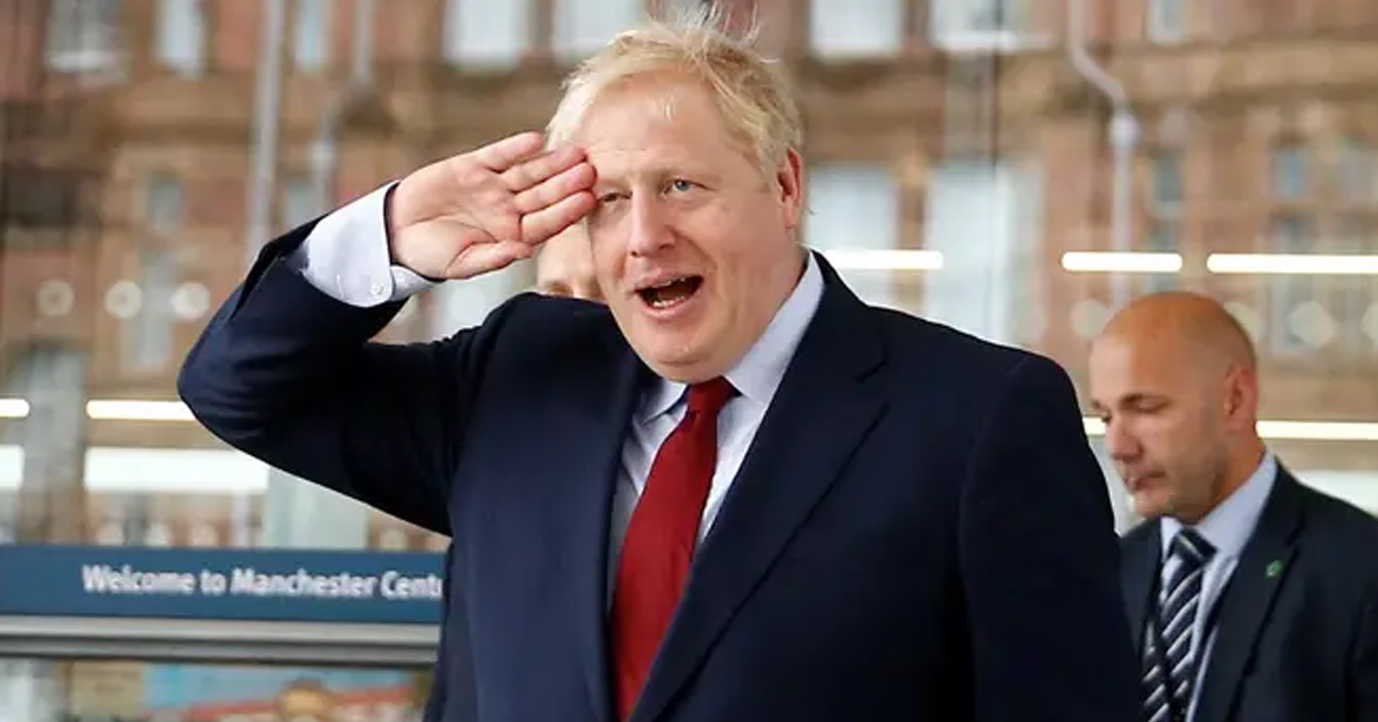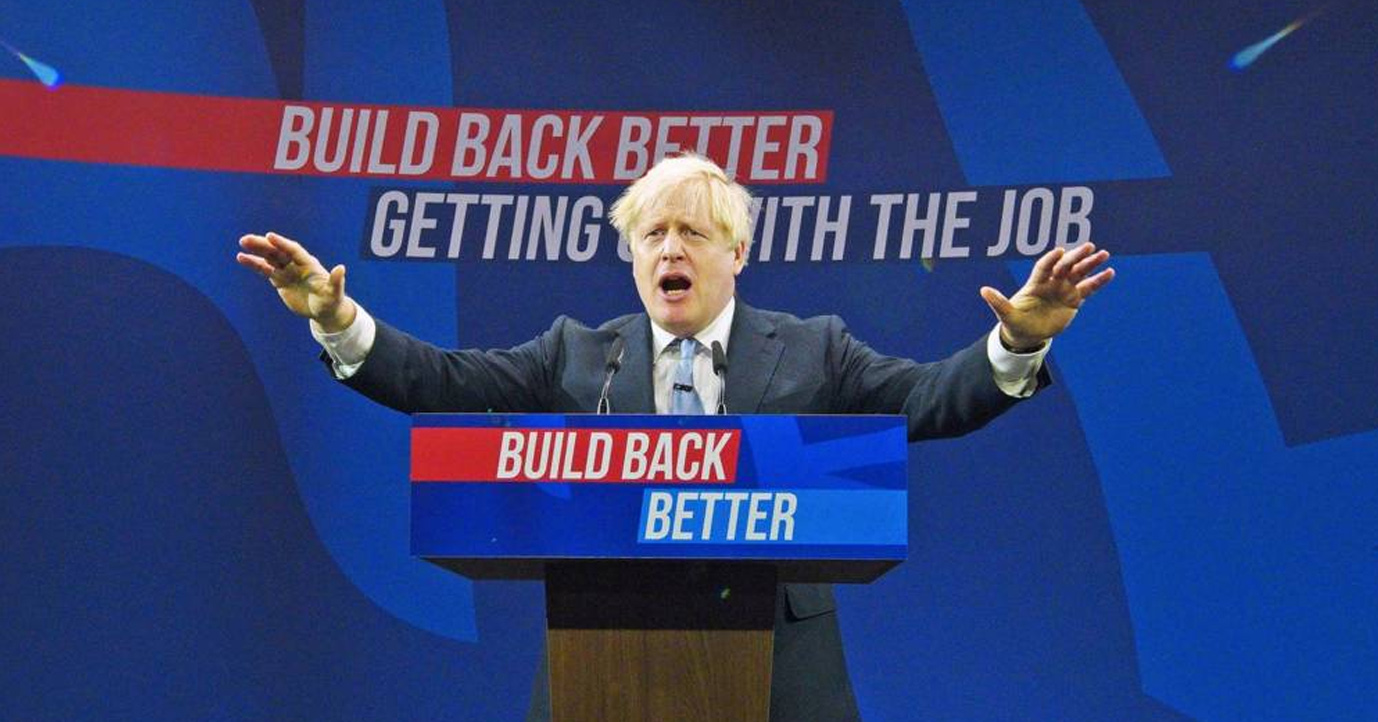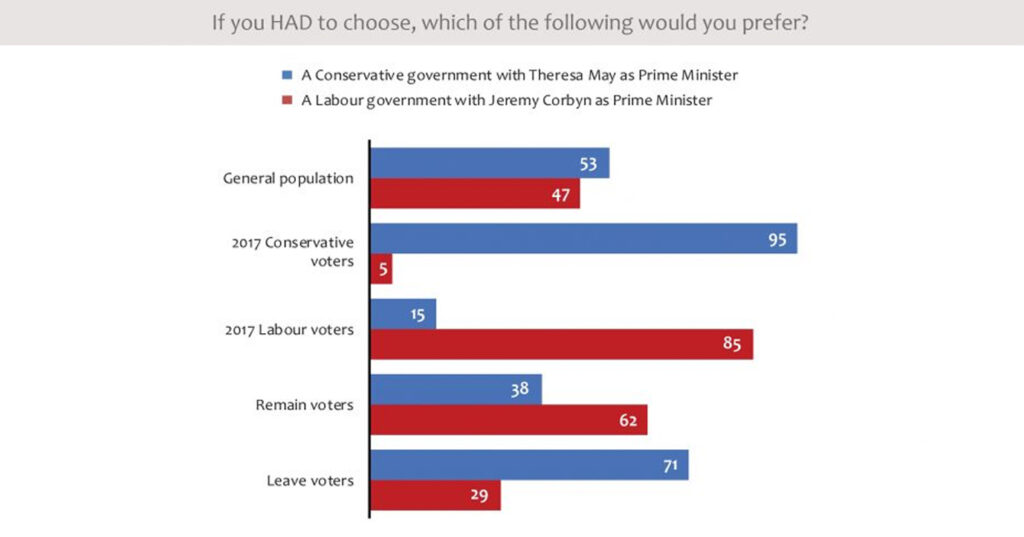
After perhaps the most difficult fortnight as Prime Minister, which is saying something, the news from my latest poll, conducted on Wednesday and Thursday, is surprisingly mixed for Theresa May. Though she would probably say this is a side issue and she is focused on other things, her personal standing among voters is actually consolidated. She now leads Jeremy Corbyn by 15 points in the best Prime Minister stakes, and while “not sure” still leads the field over both leaders, the proportion naming Mrs. May has risen while Mr. Corbyn’s numbers have fallen, most dramatically among his own voters.
We see much less change when we ask if people would prefer a Conservative government led by Mrs. May, or a Labour government with Mr. Corbyn as Prime Minister. Here there has been almost no change since I last asked the question at the beginning of the year, with just over half preferring the incumbents – itself a telling commentary on public reaction to the recent turmoil.
In fact, the political class as a whole has not covered itself in glory as far as the public is concerned. We asked whether people’s views of various politicians had become more positive or negative over the last few weeks, and in every case the latter outweighed the former. Even outspoken Brexiteers like Jacob Rees-Mogg, Dominic Raab and David Davis had as many Conservative Leave voters saying they had a lower opinion as a higher one. For Theresa May, the results were again mixed: nearly half of Conservative Remain voters said their opinion of her had risen, while just over a third of Conservative Leavers said it had fallen.
As far as the public were concerned, none of the supposed contenders to be Prime Minister would do a better job than the person who currently holds it. The group who thought another candidate would make a better PM than Theresa May was 2017 Labour voters, 58% of whom (yes, just over half of Labour voters) thought Jeremy Corbyn would do so. Though one third of Conservative Leavers thought Jacob Rees-Mogg or Boris Johnson would do a better job, slightly more of them thought they would not. Conservative Leavers were most likely to warm to the idea of David Cameron taking over – an idea suggested by the irrepressible Steve Hilton – but even they were more likely to prefer the idea of Theresa May staying on.
Another piece of mixed news for the Conservatives was that perceptions of both parties are largely unchanged since I last asked about them in September. This is good news in the sense that tumultuous times have not pushed the party’s ratings a great deal lower; on the other hand, there wasn’t a great deal further for them to fall. While just under half think the party is willing to take tough decisions for the long term, only 22% think the Tories are competent and capable, compared to 20% for Labour. Only six in a hundred voters think the Conservative Party is united.
Just under half (45%) of voters claimed to know either “a great deal” or “a bit” about the draft Brexit deal agreed between the government and the EU. Just over half admitted they did not, including a quarter who said they knew “little or nothing” about the agreement. Overall, just under one in five said that from what they had read or heard they thought the Brexit deal honoured the referendum result, including just 13% of Leave voters. Only one group – Conservative Remainers – was more likely to say the deal honoured the result (35%) than that it did not (27%). Nearly four in ten said they didn’t know.
Voters as a whole were slightly more likely than not to say they thought the agreement was better than leaving the EU with no deal. Conservatives as a whole were evenly divided on this question, though Tory Remainers thought it was better than no deal by a 36-point margin, while Tory Leavers thought the opposite by 15 points. Labour voters overall were more likely to think the agreement better than no deal, but four in ten said they didn’t know.
However, voters were twice as likely to think the deal sounded worse than remaining in the EU on our current terms (42%) as to think it sounded better (21%). While Remain voters thought it sounded worse by a 43-point margin, Leavers were precisely divided – indeed Conservative Leave voters were the only group to think the deal would be preferable to remaining on our current terms (40%) than worse (33%).
Even so, voters were pessimistic about the prospects of negotiating a new agreement. Only just over one in ten thought the EU would be willing to agree new terms if Theresa May were to seek them, and only 15% thought they would do so if they were approached by a new Prime Minister.
That being the case, what should Members of Parliament do if asked to vote for a Brexit deal they were unhappy with? By a 20-point margin, voters as a whole said MPs should “vote to reject the agreement even if it is not clear what the outcome would then be,” rather than “vote to accept the Brexit agreement as an imperfect compromise and move onto other issues.”
Labour voters, Remainers as a whole and Conservative Leavers all favoured rejecting the agreement even in the face of unknown consequences; Conservative Remainers, notably, were the only group more inclined to accept an imperfect deal and move on.
By 65% to 24%, Conservative Remainers thought that a Labour government with Jeremy Corbyn as Prime Minister would be worse for Britain than leaving the EU with no deal. By the lower margin of 54% to 33%, Conservative Leavers thought a Corbyn-led Labour government would be worse than accepting a Brexit deal that did not mean the UK taking back full control of its money, borders and laws.
Labour Leave voters, meanwhile, said it was more important to them for the UK to take back full control than it was to get a Labour government with Corbyn as PM.
Voters rejected the idea of a second referendum to choose between the draft withdrawal agreement and leaving the EU with no deal by 19 points – though one in five said they didn’t know. However, there was only a 9-point margin against a referendum to choose between the draft deal and remaining in the EU.
There was less appetite for a general election. Only just over one in five – including fewer than four in ten Labour voters – said there should be a new election before the terms of Brexit are finalised. Only just over one in three said a general election should take place if Theresa May were replaced as PM before the Brexit deal was signed and sealed.
